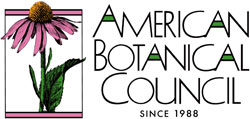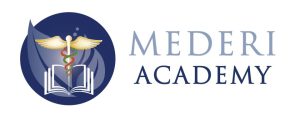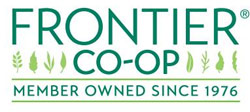Past Conference — Audio recordings, videos and lecture notes from this event are available for purchase
Save the date for next year’s Medicines from the Earth: June 3-6, 2022
I have to tell you I just love this online format! Being there in person is wonderful and all, but with the online videos I can go back and listen to things again if I missed something until I really understand the material, and that makes me a better practitioner for my patients! And you tell all those speakers that even though they are talking to a computer, we are all out there on the other side and loving every minute!
Table of Contents (Past conference)
- Registration
- Live-stream videos June 4 – 7, 2021
- In-person Field Studies and Herb Walks
- Pre-recorded on-demand videos to stream any time
- Continuing Education
- Speakers and Topics
- Sponsors and Online Exhibit Hall
Highlights:
- Full program of live online presentations June 4 – 7 with speaker Q&A
- All live presentations are recorded for later viewing if you can’t attend at the time
- Theme: Building Mental and Physical Resilience with Botanicals. See topic list
- 30 online lectures plus 4-hour intensive
- Friday Intensive with Jason Miller, DACM, live online with audience participation
- In-person field studies and herb walks near Asheville, NC (safety guidelines permitting)
- Continuing education credits for ND, DO, MD, RN, FNP, LAc, and others. Details
- Approved for up to 49 hours of continuing education by the American Academy of Family Physicians (AAFP)
- Registration includes:
-
- Access to 30 videos for one year (plus extra intensive for those signed up for it)
- Digital lecture notes and PowerPoints in PDF format to own
- Full set of audio recordings to own
- Continuing education ($29 additional fee for CE. One fee for all certificates needed.)
- Herb walks in the Asheville area for local participants (not being recorded for later viewing)
Registration closed — past conference.
Cancellations: Before May 12, registration fees will be refunded minus $50 processing per registrant. No refunds can be given after 5/12/21. Refund requests should be emailed to the conference office.
Scholarships: In recognition of the need for diversity in the fields of clinical herbalism and naturopathic medicine, the conference is offering a limited number of full scholarships to persons of color (Black, Indigenous, Hispanic/Latino, and Asian-American) who are not yet practitioners and would like to further their education in the clinical uses of botanical medicine. Details
Other Full and Partial Scholarships are modeled on the work-study program. There are a limited number of scholarships based on financial need, and secondarily on participation in publicity initiatives for the symposium. Applications close March 3. Details
Live Stream Events June 4 – 7, 2021 (Past Conference)
(Listed in Eastern Time Zone)
All live events are recorded for later on-demand viewing for those who can’t attend online at the scheduled time.
Note: The information provided in this symposium is a research resource for health professionals and is not intended to replace diagnosis and treatment by a qualified health care practitioner.
Online Pre-Conference Intensive with Jason Miller, DACM, LAc
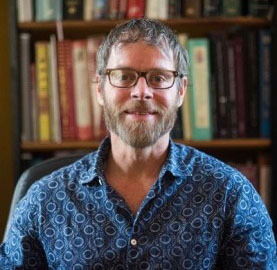
Title: Targeting the Biological Terrain in Collaborative Oncology: Correlating Modern Biomarkers with Traditional Principles of Diagnosis and Treatment
Date: Friday, 6/4/21
Time: 1:00 – 5:00 PM Eastern Time on Zoom (video will be recorded for later viewing for those who cannot attend live online event)
Cost: $89
Open only open to symposium participants.
Continuing Education: 4 hours credit
- Approved by the American Academy of Family Physicians (see details below)
- Approved by NCCAOM (4 PDA for acupuncturists)
- Approved by OBNM (4 pharmacy credits for NDs)
Description: This intensive focuses on correlating modern biomarkers with botanical medicine principles of diagnosis and treatment. We dig into the ecological manifestations of cancer in our bodies, how to identify them, how to address them with botanical medicine, nutrition, diet and lifestyle, and how to weave these therapies with modern oncological treatments.
Friday, June 4
Note: These two Friday sessions are special additions to maximize live acupuncture hours, but all conference registrants are welcome to attend. They are being recorded for later access if you can’t attend live.
8:30 AM – 10:00 AM, Eastern Time
Vaporizer Technologies: Safety Considerations and a Mechanism for the Delivery of Botanical Medicines
Kenneth Proefrock, NMD
The first commercially viable ‘e-cigarette’ ushered in a whole new industry when it was patented and brought to market in 2003. Over the past 17 years, we have witnessed an explosion of companies with devices that promise a less toxic way to deliver nicotine and cannabinoids to consumers than traditional smoking. As the technology of this industry has evolved we have witnessed controversy and new safety concerns about the additives used for delivery, coloring, flavoring and stabilizing these products, we have also witnessed an increase in potentially addictive activity in younger people.
‘Vaping’ has become so commonplace that it has become a source of friction between parents and their children, schools and their students, even workers in their workplaces. The commonly held idea is that the second-hand ’smoke’ from these devices is harmless and non-toxic, however, that may depend on the individual and the product being used. There have been some notable public health crises related to vaping that are useful to consider, as well as some of the regulatory attempts by the FDA that reflect their thinking on how best to regulate this industry. Amidst all of this controversy, vaping has become an increasingly popular pursuit that is not likely to go away anytime soon.
10:30 AM – Noon, Eastern Time
Restoring Mitochondrial Function through Botanicals and other Naturopathic Therapies
Mary Rondeau, ND, RH (AHG)
Mitochondrial dysfunction is characterized by the reduction of energy output from the electron transport chain. Research confirms that reduced mitochondrial function is associated with nearly all chronic conditions, including neurodegenerative, psychiatric, cardiovascular, metabolic, autoimmune, cancer, chronic immune disorders and musculoskeletal. This lecture covers symptoms that are suggestive of mitochondrial concerns and testing methods to determine treatment strategies. These include botanicals specific to organ systems, nutrients and nutritional protocols to increase efficiency and restore function to mitochondria.

(Schedule subject to minor changes. All times are Eastern time zone.)
Saturday, June 5
10:30 – 12:00 PM, Eastern Time
Effective Pain Relief with Botanical and Nutritional Medicine
David Winston, RH (AHG)
The search for effective, safe and non-addictive pain medication is an age-old quest. Studies show many people, especially the elderly, the poor, people of color and women are under-treated for chronic pain. While herbs are not as powerful as opiates and other pharmaceutical medications, they can offer safer and often highly effective pain management. In this talk we discuss how specific herbs can relieve specific types of pain, how to combine herbs to create a synergistic effect and reduce inflammation, pain perception and spasm and how botanicals can enhance the effects of pharmaceutical pain medications.
12:30 PM – 2:00 PM, Eastern Time
Panel: Managing Symptoms of Hormonal Disruption with Botanical Medicine
Panelists: Jillian Stansbury, ND, Jill Crista, ND, and Kenneth Proefrock, NMD
This panel’s focus is on endocrine disruptors in the environment. What does that mean, what compounds are endocrine disruptors, how can we avoid them, how do we get them out of the body once we are exposed? Do foods, herbs, legumes, fiber protect against environmental agents?
2:30 PM – 4:00 PM, Eastern Time
Botanical Medicine Targeting Cancer Stem Cells
Donald Yance, RH (AHG)
Cancer stem cells are a subpopulation of cancer cells that reside underneath the surface. It is like the root system of the cancer, which is responsible for cancer migration, invasion and chemotherapy resistance. Cancer stem cells also give rise to tumor bulk through continuous self-renewal and differentiation. Understanding stem cell signaling pathways and molecular mechanisms is essential for developing botanical and nutritional therapies. The research shows the unique and very promising effect of these therapies, which target specific cancer signaling pathways responsible for chemotherapy resistance, alterations of cellular metabolism and impaired apoptosis. We highlight numerous natural compounds including curcumin, diallyl trisulfide, chrysin, resveratrol, Acetyl-11-keto-beta-boswellic acid, Bacoside A apigenin, quercetin, ellagic acid, honokiol, epigallocatechin, and sulforaphane.
7:00 PM – 8:30 PM, Eastern Time
Keynote Panel: Honoring Our Teachers – Stories from the Early Years of Modern Herbalism
Speakers: Deborah Frances, ND, Kat Maier, RH (AHG) and Mary Bove, ND
What brought you to the path of healing with botanical medicine? Remember your own stories when you hear three speakers talk about the beginning days of their life path and who and what inspired them on the way. How do we use this information to navigate the future of herbalism?
Sunday, June 6
10:00 AM – 11:30 AM, Eastern Time
Conquering Toxic Mold Exposure
Jill Crista, ND
Climate change and building practices have created the perfect storm for indoor mold blooms. Unfortunately, few agencies responsible for defining mold-related illness recognize the deleterious health impacts from mold mycotoxins. Therefore, many cases of mold illness are misidentified, and the cause goes untreated, resulting in needless suffering. I’m on a mission to raise medical literacy about mold and mold-related illness. In my experience, natural medicine holds the key to conquering this problem.
In this presentation, we will define mold illness and the mechanisms for creating illness, identify the symptoms of mold illness, including a useful clinical questionnaire and discuss lab testing options and limitations. Learn naturopathic approaches to treatment including foods, beverages and supplements that help and hinder including treatise on bile, binders, and cholagogues. Presentation will also help attendees identify select tools to protect and repair from mold mycotoxin exposure, and explore both systemic and intranasal antifungal treatment. Botanicals covered include aloe, green tea, milk thistle, turmeric, artichoke, holy basil, thyme and more.
12:30 PM – 2:00 PM, Eastern Time
Panel: Restoring Mental Health in the 21st Century: Managing Chronic Overwhelm
Teresa Boardwine, RH (AHG), Katie Stage, ND and David Winston, RH (AHG)
Those patients who tend to be overwhelmed by life events have been especially challenged this past year with political, social and environmental difficulties at every turn. These events have driven more people into a state of being chronically overwhelmed. What do we recommend to restore equilibrium in these times, both for ourselves as practitioners and our patients? Discover lifestyle, botanical and nutritional therapies you may not have yet considered.
2:30 PM – 4:00 PM, Eastern Time
Cannabis in Medicine: Applications and Limitations
Jason Miller, DACM
Emerging research on Cannabis corroborates its use for pain, nausea, PTSD and other mental health conditions, but it has to be used with care and knowledge. Cannabis also has an addiction profile similar to alcohol and with widespread legalization these side effects are becoming better-known. Explore these applications and limitations with an experienced practitioner with a common-sense approach.
5:00 PM – 6:30 PM, Eastern Time
The Chemistry of Flavors: Expanding our Palette and Increasing our Neural Connections (Demonstration with audience participation)
Kenneth Proefrock, NMD
Taste brings in at least eight categories of specific sensory experience: sour, sweet, salty, bitter, savory, pungent, spicy and astringent, with an additional component of texture and mouth-feel. Expanding the dietary/flavor palette provides new and interesting input to our palate and, it turns out, has a stimulating effect on the genesis of neural connections in our nervous system and a dramatic effect on our memory. Here we provide a context for expanding one’s palate and calibrating that experience in a meaningful way that is specific to healing and botanical medicine. You’ll receive a list of flavor-rich foods and herbs to try at home during the lecture. Included in this discussion is a review of the conceptions of food energetics from Traditional Chinese Medicine and Ayurvedic medicine as well as western sensibilities about flavor profiles and energetics.
Monday, June 7
10:00 AM – 11:30 AM, Eastern Time
Botanical Therapies for Childhood Asthma
Mary Bove, ND
Currently there are over 6 million children in the USA suffering from asthma. Asthma is a common reason for kids missing school and one of the most common chronic health conditions that affect children. Management is key for reducing the occurrence, severity, and frequency of the symptoms along with improving quality of life. Look at botanical, nutritional, dietary, and lifestyle strategies for managing chronic asthma as well as dealing with acute asthmatic events.
12:30 PM – 2:00 PM, Eastern Time
Clinical Uses of Autumn Crocus (Colchicum atumnale)
Jillian Stansbury, ND
Colchicum is the source of the colchicine alkaloid, well known for quickly reducing inflammation in gouty arthritis. However, Colchicum may have many other uses due to affects on microtubules of the cytoskeleton, affecting mitosis, vesicle trafficking, and cellular structure and dynamics. Despite potential toxicity, long-term use of colchicine is shown to be safe in children, and even in pregnant and nursing women when used in very small amounts to treat rheumatoid arthritis and other collagen vascular diseases. This presentation will review the history of the alkaloid as well as current research on the plant of conditions other than gout.
IN-PERSON FIELD STUDIES and HERB WALKS
These events are open to a small number of local participants and will take place near Asheville, NC, safety guidelines permitting. (These will not be recorded on video, and only take place in person.)
In-person All Day Field Study
Appalachian Botanicals: Botany and Medicinal Applications
(Herb Mountain Farm in Weaverville, NC) with Marc Williams, Ethnobotanist
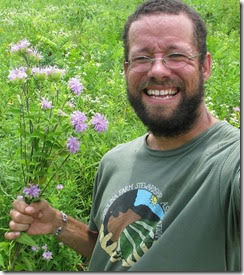
Date: Friday, 6/4/21
Time: 10 AM – 3 PM Eastern Time
Cost: $79
Open: Only to registered symposium participants, 35 person limit
Description: A well-traveled and experienced ethnobotanist, Marc Williams shares his knowledge of sustainable Appalachian plant harvest and uses, with an emphasis on how we can all become stewards of our medicinal plant heritage.
Continuing Education not available for in-person events this year. Will not be recorded.
In-person Herb Walk with Doug Elliott
Open only to symposium registrants, no extra cost. Advance reservation required when registering.
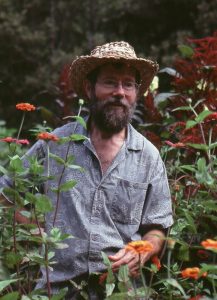
Date and Time: Saturday, June 5, 2-4 PM
Location: Herb Mountain Farm in Weaverville, NC (about 25 minutes from Asheville)
Open: Only to symposium participants (no extra cost). Pre-registration required. Limit 20 so sign up early!
Description: Whether he’s pointing out poison ivy, pontificating on poke sallet, crooning about creasy greens, jiving about ginseng, or extolling the virtues of dandelions, this beloved herbalist, author, and storyteller will delight and amaze you with his broad, practical, scientific and cultural knowledge of the area’s many useful wild plants.
Continuing Education not available for in-person events this year. Will not be recorded.
(Available on-demand from anywhere)
Teresa Boardwine, RH (AHG)
Trauma-Informed Care: First Aid for Practitioners
Responses to trauma vary: numbness and inability to experience feelings; extreme sadness; inability to concentrate; physical symptoms, etc. These feelings are a normal part of grieving and recovering from any trauma. If they persist for more than two weeks or begin to interfere with daily living, they are symptoms of a more serious episode of depression. This is a heightened reaction to an abnormal situation, not a character flaw or sign of personal weakness.
The healing process takes time. Besides the usual recommendations to talk to friends and family, limit news exposure, keep to a daily routine of nourishing meals and plenty of rest, and get help if you need it, herbs can have a soothing effect on the whole system. Recommendations are included for soothing teas, herbal bathing, massage using essential oils, and aromatherapy. All can have a marked effect on speeding recovery and restoring balance.
Home Health Care for Families
Taking care of loved ones in the time of a pandemic is more challenging than ever and even more demanding of the caretaker. In this class, we discuss how to include all household members in the planning, expectations and considerations of providing care for family at home. How can we empower and enable those in our communities to provide care with what skills and equipment they have or can easily acquire?
Featured in this presentation:
• Assembling a home first aid kit
• Demonstration of application of poultices, fomentations and liniments for common conditions
• First aid repertory of botanicals for common ailments including aches/sprains, allergic reactions, asthma, bleeding, cold and flu, digestive upsets, headache, immune boosters, anti-microbials, insomnia, pain and stress/anxiety
• What herbs to carry in home herbal apothecary
Jill Crista, ND
PANDAS & PANS: Natural Medicine Rescue for Post-Infectious Autoimmune Encephalopathies
Families dealing with PANDAS and PANS (Pediatric Acute-onset Neuropsychiatric Syndrome) watch at their children experience a sudden onset of severe neuropsychiatric symptoms following an illness, usually strep. This presentation covers the definition of PANDAS and PANS, symptoms, and diagnostic criteria while outlining the developing understanding of the mechanisms. We include a discussion of lab testing options and limitations, cover the pharmaceuticals usually prescribed, and offer an alternative approach to treatment. Attendees will be able to identify key botanical for addressing multiple mechanisms causing neuropsychiatric symptoms, including berberine, gotu kola, Chinese skullcap, bacopa and more.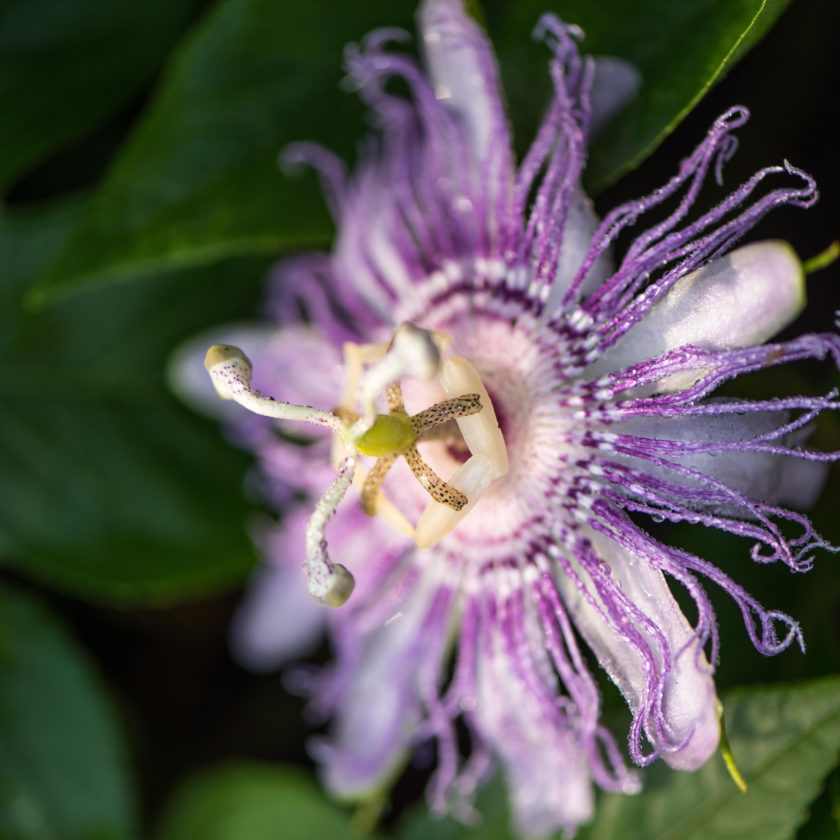
Deborah Frances, ND
Pelvic Decongestant Herbs for Clearing and Grounding
Addressing stagnation of blood, lymph and energy flow through the pelvis is essential for the successful treatment of reproductive conditions in both men and women. Ceanothus, Achillea, Cimicifuga, Gossypium, Foqueria, Nymphaea and many other plants are highlighted in this presentation, with specific indications given to differentiate which of the many herbs available to us is the most suited for each individual as well as the medical condition with which they present.
The Treatment of Intestinal Parasites with Herbs
Plants such as wormwood, quassia and black walnut can be highly efficacious in clearing intestinal parasites, even when pharmaceuticals such as metronidazole and ivermectin fail to eradicate infestation. Milder herbs like garlic, pumpkin seed and garden sage can act as supportive and preventive agents. Pulsed dosing of herbs is essential to address encysted forms of parasites. Failure in treating conditions such as giardia, pinworms and even tapeworm with plant medicines is often more related to underdosing than it is to the power of plants. We delve into the plants, dosing strategies and other recommendations for effective treatment.
Tori Hudson, ND
Brain Aging in the Menopausal Woman: Effects on Moods, Memory and Botanical Solutions
The aging brain in the perimenopausal and postmenopausal woman comes with metabolic changes, neurotransmitter changes, vascular changes and more. All of these changes contribute to the unique role of hormones in moods and memory. Select botanicals have some very important impacts and implications in these changes and have a clinical role in prevention and management. Discussion includes indications and dosages for bacopa, saffron, curcumin, Saint John’s wort, gotu kola, lemon balm, and rhodiola, among others.
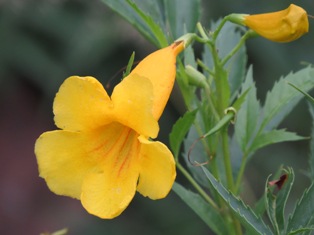
Kat Maier, RH (AHG)
A Seasonal Model for Working with Depression
The causes of depression are almost as varied as those who present with this heartbreaking challenge. While hormones and neurotransmitters are a definite part of the puzzle, Chinese Medicine provides us with an amazing lens to view our mental health through the seasons. This class looks at Five Element Theory, how different organ systems and emotions are related to each other, and how they play a significant role in anxiety as well as depression. In Spring, where the element of Wood governs Liver/Gallbladder, we look at hepatic depression, melancholy (black bile) and the emotion of anger that is processed here. Summer is dominated by the Fire Element and we look at nourishing Heart energy through cardiac tonics. Late Summer relates to the Earth element, Stomach/Spleen. We look at the key role our gut biome plays in mental health as well as our ability to ‘digest’ overwhelming emotions. Fall is the Element of Metal, Lungs/Large Intestine where grief is processed. A large percentage of people with depression actually are manifesting unresolved grief, as our culture does not support this process. Finally, we will look at the energies of Winter, Kidney/Bladder and how adaptogenic herbs support hormonal and neurological functioning to deal with chronic challenges. This is the Water element that processes fear and the health of this Element is crucial for our times.
Deepening Plant Relations – Goethean Study of Nature
Natural philosopher Johann Wolfgang von Goethe developed a methodology of working with plants in a scientific manner in which the student enters into the experience of the phenomenon (plant or tree) itself, versus engaging intellectually or in an abstract manner. By approaching a plant with an empty mind and open heart, it is possible to allow the patterns and meaning of a plant to emerge and to understand nature in a truly holistic way. Goethe maintained that this practice, while rigorous, allows for the development of the observer themselves. We will take two fifteen-minute breaks during the class for participants to go outside and practice these exercises.
Jason Miller, DACM, LAc
Acute Viral Infections: Addressing COVID and Seasonal Epidemic Disease
Long before the advent of the microscope, doctors in China recorded and treated what they called epidemic febrile diseases. Over the past 2000 years, traditional Chinese medicine has catalogued over 300 seasonal epidemic diseases that occur at a rate of about one every 4-6 years. A great deal of information has been compiled about these seasonal challenges, including how they manifest and how to manage them in the collaborative medical setting. In this lecture, we explore the results of months of intense clinical practice, observation, and research into the different types of epidemic diseases, their manifestations, risks, and effective treatment strategies with botanical medicine. In addition to therapies for acute illness, we discuss COVID “long-haulers,” pharmaceutical treatments, and vaccines.
Essence, Hormesis and Autophagy in Aging and Longevity
This session explores the ways in which lifestyle and botanical therapies can affect the ability of cells to prevent and repair genetic damage, and how this governs overall health and longevity. We take a deeper look at the TCM perspective on Essence and compare it with the modern genetic theory of aging. We also discuss the role of autophagy in aging, and how xenohormesis plays a key role in improving quality of life and longevity. Although we can’t prevent aging or death, with the use of specific botanical and nutritional agents, we can slow the aging process and help our patients age gracefully while adding healthy years to their lives.
Kenneth Proefrock, NMD
Naturopathic Formulas and Strategies of the Early 20th Century
This discussion revolves around Dr. OG Carroll, who practiced from 1908 to 1962 in Spokane, Washington and became one of the first practitioners of Naturopathic Medicine in the Western US and one of the most influential Naturopathic Physicians of the past century. His clinical approach was based on the Thomsonian system of healing, which favored a simple vegetarian diet, hydrotherapy, homeopathy, physiotherapy, and botanical medicine. He had the distinction of being one of the busiest practitioners of any school of medicine during the 1930’s and 1940’s and was said to have a botanical repertoire of 750 herbs. Dr. Carroll’s perspective was very instructive to the early days of Naturopathic Medical practice and influenced the modern practice of botanical medicine in a myriad of ways. We discuss his clinical strategies and rationales and how many of them have become part of the modern practice of clinical herbalism.
Vaporizer Technologies: Safety Considerations and a Mechanism for the Delivery of Botanical Medicines
The first commercially viable ‘e-cigarette’ ushered in a whole new industry when it was patented and brought to market in 2003. Over the past 17 years, we have witnessed an explosion of companies with devices that promise a less toxic way to deliver nicotine and cannabinoids to consumers than traditional smoking. As the technology of this industry has evolved we have witnessed controversy and new safety concerns about the additives used for delivery, coloring, flavoring and stabilizing these products, we have also witnessed an increase in potentially addictive activity in younger people.
‘Vaping’ has become so commonplace that it has become a source of friction between parents and their children, schools and their students, even workers in their workplaces. The commonly held idea is that the second-hand ’smoke’ from these devices is harmless and non-toxic, however, that may depend on the individual and the product being used. There have been some notable public health crises related to vaping that are useful to consider, as well as some of the regulatory attempts by the FDA that reflect their thinking on how best to regulate this industry. Amidst all of this controversy, vaping has become an increasingly popular pursuit that is not likely to go away anytime soon.
Mary Rondeau, ND, RH (AHG)
Restoring Mitochondrial Function through Botanicals and other Naturopathic Therapies
Mitochondrial dysfunction is characterized by the reduction of energy output from the electron transport chain. Research confirms that reduced mitochondrial function is associated with nearly all chronic conditions, including neurodegenerative, psychiatric, cardiovascular, metabolic, autoimmune, cancer, chronic immune disorders and musculoskeletal. This lecture covers symptoms that are suggestive of mitochondrial concerns and testing methods to determine treatment strategies. These include botanicals specific to organ systems, nutrients and nutritional protocols to increase efficiency and restore function to mitochondria.
Katie Stage, ND, RH (AHG)
Hairy Predicaments: Botanicals for Hair Loss and Abnormal Hair Growth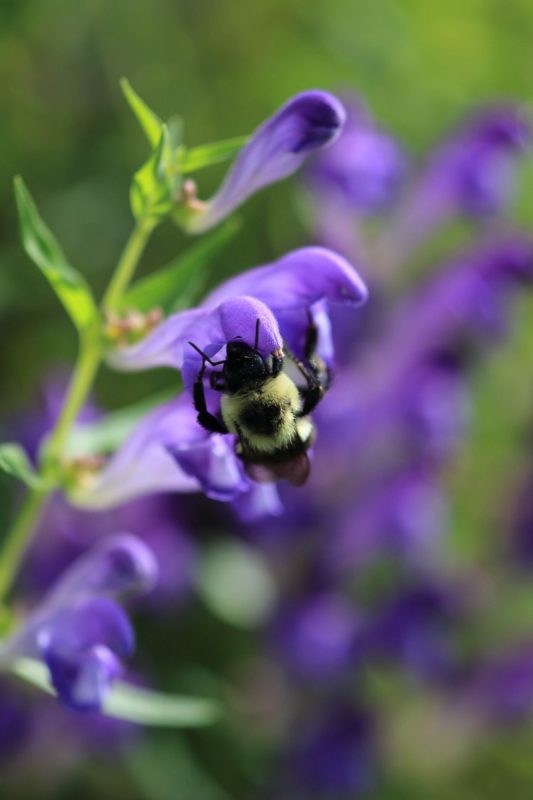
Loss of head hair is both common and concerning for many people. In this session, we explore causes and targeted treatments for various types of head hair loss. We also discuss causes and treatments for hirsutism, or abnormal hair growth on the face and body. Topical botanicals, herbal formulas and nutritional support form the backbone of the recommended treatments. Standard pharmaceutical treatment of male pattern baldness with finasteride and minoxidil are also evaluated.
Embracing the Change: Botanical and HRT Treatments for Menopause
Not all women experience significant climacteric symptoms during and after the transition to menopause, but for some, symptoms can be persistent and severe. Often, women have strong feelings about the use of natural treatments or HRT (hormone replacement therapy). This session explores both types of treatment, including safety, doses, and applications for specific symptoms such as low libido, painful sex, and “brain fog”.
Jillian Stansbury, ND
Herbs to Improve Adrenergic Tone – Lifting Deep Lethargy and Melancholia
Melancholy has been an integral part of so many lives this last year, often caused by the continual fight or flight effect of epinephrine on the nervous system. Increased adrenergic activity is manifested in tachycardia, diaphoresis, pallor, peripheral cyanosis with pallor, coldness of the extremities and deep fatigue. By toning the adrenergic receptors and damping these responses, these effects can be managed. Herbs can help bring light to a dark situation and offer relief. The therapeutic effects of mimosa, rose, St. John’s wort, rhodiola, holy basil and others are investigated, and recommendations on delivery systems and dosages described.
Neural Pathways Review
This session starts with a review of the basic neurotransmitters, with examples of classic herbal agonists and antagonists. Dopaminergic, serotonergic, cholinergic, adrenergic, and GABAergic pathways will be reviewed along with the most common receptors types and their roles in various mental-emotional states. We conclude this presentation with a discussion of brain plasticity and all the excitement over impending legalization of DMT, psilocybin, and other entheogens to rewire the brain.
Marc Williams, MA
Temperate Medicinal Plant Biogeography and Conservation
We discuss several of the major medicinal plants growing in the cold areas of the world that are often used in herbalism. We review where these plants originate and the current state of their conservation. The work of United Plant Savers in plant preservation is a major topic of discussion. The need for more cultivation of various species and resources to assess sustainability of harvest will round out our discussion. Examples of some of the plants we discuss include Black Cohosh (Actaea racemosa), Fairywand (Chamaelirium luteum), Ginseng (Panax quinquefolia), Goldenseal (Hydrastis canadensis), Osha (Ligusticum spp.), Spikenards (Aralia spp.), Stoneroot (Collinsonia canadensis) and White Sage (Salvia apiana).
David Winston, RH (AHG)
The Zingiberaceae: A Family Worth Knowing
The Zingiberaceae (or Ginger) family is made up of approximately 50 genera with almost 1600 known species of highly aromatic perennial herbs. Most have lateral roots or fleshy rhizomes and are found growing in South and Southeast Asia, tropical Africa and Central and South America. While some of these plants, especially ginger, turmeric and cardamom, are well-known and used throughout the world, others may only be used regionally. Many more of these plants are used as foods, spices, medicines, dyes, perfumes and as ornamental plants in Indonesia, Malaysia, India, China, the Philippines, Myanmar, Thailand and Laos. Although the phytochemistry of this diverse family of plants differs widely, a great number of Zingiberaceae species are rich in highly active volatile oils and oleoresins.
Donald Yance, RH (AHG)
Clinical Applications for Using 13 Heroic and Potentially Toxic Herbs
Poisonous plants, when used in the proper, prescribed doses, can act as potent therapeutic agents. Virtually any substance can be harmful at high enough concentrations, and it is thought that if the dose is low enough, even a highly toxic substance will cease to cause a harmful effect. The toxic potency of a chemical is thus ultimately defined by the dose (the amount) of the chemical that will produce a specific response in a specific biological system. “In all of these debates, the key point that is not often understood is that it’s the dose that makes the poison,” says Dr. Carl Winter, an expert in toxicology at the University of California, Davis. “The tendency is to exaggerate toxicity. It’s a slippery slope where to draw the line on what represents a legitimate concern and what restrictions should apply.”
I often combine medicinal plants with powerful actions, such as Digitalis and Belladonna, with those with very gentle action, such as chamomile, lemon balm and many adaptogenic plants. “Gentle action”, when referring to herbs such as chamomile does not mean they are more or less ineffective, but rather they are plants that either don’t produce instant and powerful effects and/or they can be consumed in higher doses without any adverse effects. When I combine powerful herbs with gentle herbs I am looking for the powerful herbs to push a bit in a specific direction while the gentle tonic-like herbs provide the overall therapeutic effect, always in concert with the life-force of the body, lending a helping hand rather than doing all the lifting.
Continuing Education Credits
Credits issued for full or partial attendance. Please sign up for CE when you submit your registration form ($29 additional fee for all CE. One fee for all certificates needed). We offer CE, CME, CNE, PDA, and CEUs through these approvals:
AMERICAN ACADEMY OF FAMILY PHYSICIANS (AAFP):
Approved for up to 49 hours Prescribed Credit* for DO, MD, RN, FNP, California NDs, and others. AAFP approval details
The AAFP has reviewed 2021 Medicines from the Earth Herb Symposium, and deemed it acceptable for AAFP credit. Term of approval is from 06/04/2021 to 06/02/2022. Physicians should claim only the credit commensurate with the extent of their participation in the activity.
*AMA/AAFP Equivalency:
AAFP Prescribed Credit is accepted by the American Medical Association as equivalent to AMA PRA Category 1 credit(s)™ toward the AMA Physician’s Recognition Award.
NATUROPATHIC PHYSICIANS:
- Approved for all NDs (including California CNDA) who accept AAFP credits described above
- Approved: Oregon (OBNM): up to 49 general hours of which 11.5 can be pharmacy
- ND approval details
ACUPUNCTURISTS:
- Approved: NCCAOM: Up to 22 PDA points (hours)
- Note: NCCAOM gives credit for only those videos viewed live from June 4 – 7. We have set up a special schedule for acupuncturists needing to maximize their NCCAOM credits, which includes two presentations on Friday morning, June 4. NCCAOM approval details
NURSING:
- Approved by the AAFP (see above) for up to 49 hours CE credit. (AAFP is recognized by the ANCC as a provider of nursing continuing education for RNs, FNPs and other nursing professionals)
Nursing approval details
A certificate of attendance is available to any participant who requests it.
Questions about continuing education? Please email us and we’ll be happy to help.
Symposium begins video streaming on Friday, June 4. Attendees have access to videos for one year after the symposium ends.
Teresa Boardwine, RH (AHG)
Teresa Boardwine operates the Green Comfort School of Herbal Medicine in the Blue Ridge Mountains of Virginia, where she offers classes, consultations and online access to her workshops. She has been teaching her hands-on medicine making classes for over 20 years. More about Teresa Boardwine.
Presentations:
1. Trauma Informed Care: First Aid for Practitioners
2. Home Health Care for Families
3. Panel: Restoring Mental Health in the 21st Century: Managing Chronic Overwhelm
Mary Bove, ND
A clinical medical herbalist, Mary Bove had a practice in family medicine in Brattleboro, Vermont for over 20 years. where she assisted at the birth of a whole generation of children. She is the author of An Encyclopedia of Natural Healing for Children and Infants, and co-author of Herbs for Women’s Health. Since starting her herbal journey at age 18, Mary has held firm to three tenets: “Walk your talk, believe in the plants and practice herbalism every day in your life.” More about Mary Bove.
Presentations:
1. Botanical Therapies for Childhood Asthma
2. Keynote Panel: Honoring Our Teachers – Stories from the Early Years of Modern Herbalism
Jill Crista, ND
A naturopathic doctor, best-selling author, and internationally recognized educator on mold-related illness, Jill Crista helps people recover their health after exposure to toxic mold. She is the author of Break The Mold: 5 Tools To Conquer Mold and Take Back Your Health. She also provides online training for medical practitioners to help them become Mold-Literate; to efficiently and effectively identify and treat their mold-sick patients. More about Jill Crista.
Presentations:
1. Conquering Toxic Mold Exposure
2. PANDAS & PANS: Natural Medicine Rescue for Post-Infectious Autoimmune Encephalopathies
3. Panel: Managing Symptoms of Hormonal Disruption with Botanical Medicine
Doug Elliott
Doug can show you how to make medicine out of common wild plants, and how to properly harvest a persimmon and use its seed to forecast the winter. He can explain the virtues of poison ivy and what might happen to you if you eat it. He knows ancient plant lore, plant riddles, and even songs about weeds and berries. More about Doug Elliott.
Presentations:
Herb Walk at Herb Mountain Farm in Weaverville, NC
Deborah Frances, N.D
Deborah Frances N.D., began her career in health care as a registered nurse, where she gathered extensive experience in a wide range of fields, including psychiatry, women’s health, family practice and intensive and coronary care. In 1993, she graduated from the National College of Naturopathic Medicine in Portland, Oregon. Currently on sabbatical, Deborah, also known as Dancing Crow, has just started teaching again at outdoor venues. In her healing she utilizes natural therapies such as homeopathy, herbal medicine, hydrotherapy, physical medicine, nutrition and hands on energy therapies to help resolve blocked mental, emotional or spiritual patterns. More about Deborah Frances.
Presentations:
1. Pelvic Decongestant Herbs for Clearing and Grounding
2. The Treatment of Intestinal Parasites with Herbs
3. Keynote Panel: Honoring Our Teachers – Stories from the Early Years of Modern Herbalism
Tori Hudson, ND
Currently a professor at National University of Natural Medicine (NUNM) and clinical professor at Southwest College of Naturopathic Medicine and Bastyr University, Tori Hudson has been in naturopathic practice for 30 years. She is the medical director of her clinic, A Woman’s Time in Portland, Oregon, and director of product research and education for VITANICA. She is the author of An Encyclopedia of Women’s Health and serves on several editorial boards, advisory panels and as a consultant to the natural products industry. More about Tori Hudson.
Presentation:
1. Brain Aging in the Menopausal Woman: Effects on Moods, Memory and Botanical Solutions
Kat Maier, RH (AHG)
Kat Maier has been a practicing herbalist for over thirty years and is currently director of Sacred Plant Traditions in Charlottesville, Virginia where she offers a three-year clinical/community herbalist training program. She began studying plants in the Peace Corps in Chile and is certified as a physician’s assistant. More about Kat Maier.
Presentations:
1. A Seasonal Model for Working with Depression
2. Deepening Plant Relations – Goethean Study of Nature
3. Keynote Panel: Honoring Our Teachers – Stories from the Early Years of Modern Herbalism
Jason Miller, DACM, LAc
Jason Miller practices botanical and nutritional medicine, acupuncture, and Asian bodywork at his clinic, Jade Mountain Medicine in Ashland, Oregon. He received his master’s degree in acupuncture and Oriental medicine from the Oregon College of Oriental Medicine in 2005 and completed a postgraduate internship at the “House of Celebrity Doctors” in Nanjing, China. He earned his Doctorate of Acupuncture and Chinese Medicine (DACM) from the Pacific College of Oriental Medicine in 2018. His approach bridges the frameworks of traditional and modern medicine in the management of chronic disease. More about Jason Miller.
Presentations:
1. Intensive: Targeting the Biological Terrain in Collaborative Oncology: Correlating Modern Biomarkers with Traditional Principles of Diagnosis and Treatment ($89)
2. Cannabis in Medicine: Applications and Limitations
3. Acute Viral Infections: Addressing COVID and Seasonal Epidemic Disease
4. Essence, Hormesis, and Autophagy in Aging and Longevity
Kenneth Proefrock, NMD
A naturopathic physician practicing in Surprise, Arizona, Kenneth Proefrock specializes in difficult to treat conditions in patients of all ages. He is the Vice President of the North American Board of Naturopathic Examiners and chair of the biochemistry portion of the Naturopathic Physician’s Licensing Exam. More about Kenneth Proefrock.
Presentations:
1. Vaporizer Technologies: Safety Considerations and a Mechanism for the Delivery of Botanical Medicines
2. The Chemistry of Flavors: Expanding our Palette and Increasing our Neural Connections
3. Naturopathic Formulas and Strategies of the Early 20th Century
4. Panel: Managing Symptoms of Hormonal Disruption with Botanical Medicine
Mary Rondeau, ND
Mary Rondeau ND, RH(AHG) is a registered naturopathic doctor, functional medicine specialist and registered herbalist. Her interest in plants and natural healing stemmed from her upbringing in the Rocky Mountains learning about folk remedies with her mother as a child. More about Mary Rondeau.
Presentations:
1. Restoring Mitochondrial Function through Botanicals, Nutrients and Dietary Modifications
Katie Stage, ND, RH (AHG)
Katie Stage is a naturopathic physician and professional member of the American Herbalists Guild. She is Associate Professor and Director of the Therapeutics Division at the Southwest College of Naturopathic Medicine (SCNM) in Tempe, Arizona. Her practice is focused on optimizing the health of those with endocrine, gastrointestinal, and mental health conditions. She is also a member of the Ric Scalzo Botanical Research Institute. More about Katie Stage.
Presentations:
1. Embracing the Change: Botanical and HRT Treatments for Menopause
2. Hairy Predicaments: Botanical Medicine for Hair Loss and Abnormal Hair Growth
3. Panel: Restoring Mental Health in the 21st Century: Managing Chronic Overwhelm
Jillian Stansbury, ND
A naturopathic physician who has practiced in SW Washington for over 30 years specializing in women’s health, mental health, and chronic disease, Jill Stansbury holds undergraduate degrees in Medical Illustration and Medical Assisting and graduated with honors in both programs. She was the chair of the botanical medicine department at the National University of Natural Medicine (NUNM) for over 20 years. She also leads classes and Ethnobotany trips in the Andes and Manu region of the Peruvian Amazon. More about Jillian Stansbury.
Presentations:
1. Herbs to Improve Adrenergic Tone – Lifting Deep Lethargy and Melancholia
2. Clinical Uses of Autumn Crocus (Colchicum atumnale)
3. Neural Pathways Review
4. Panel: Managing Symptoms of Hormonal Disruption with Botanical Medicine
Marc Williams, MA
A well-traveled and experienced ethnobotanist, Marc Williams has taught hundreds of people about the marvelous world of plants, people and their interface, while working with over 50 organizations and online at the website www.botanyeveryday.com to improve the current global ecological crisis. His training includes a B.A. in Environmental Studies/Sustainable Agriculture and an M.A. in Appalachian Studies/Sustainable Development. More about Marc Williams.
Presentations:
1. Online: Temperate Medicinal Plant Biogeography and Conservation
2. In person: Appalachian Botanicals: Botany and Medicinal Applications (Field Study at Herb Mountain Farm in Weaverville, NC) $79
David Winston, RH (AHG)
David Winston is an herbalist and ethnobotanist with over 40 years of training and clinical experience in Cherokee, Chinese and Western/Eclectic herbal traditions. He has had a clinical practice for over 30 years and is an herbal consultant to physicians throughout the USA and Canada. President of Herbalist & Alchemist, Inc. an herbal manufacturing company, he is also founder/director of David Winston’s Center for Herbal Studies, which features his highly respected Two-Year Clinical Herbalist Training Program. More about David Winston can be located at Herbal Studies.
Presentations:
1. Zingiberaceae: A Family Worth Knowing
2. Effective Pain Relief with Botanical and Nutritional Medicine
3. Panel: Restoring Mental Health in the 21st Century: Managing Chronic Overwhelm
Donald Yance, RH (AHG)
An herbalist and certified nutritionist, Donald Yance practices at the Mederi Center in Ashland, Oregon, where he specializes in the treatment of cancer and other chronic diseases. He is the founder and president of the Mederi Foundation, a nonprofit organization for professional education and clinical research in integrative medicine, and president and formulator of Natura Health Products. More about Donald Yance.
Presentations:
1. Botanical Medicine Targeting Cancer Stem Cells
2. Clinical Applications for Using 13 Heroic and Potentially Toxic Herbs
Sponsors and Exhibitors
Sponsors also have the opportunity to join our virtual exhibit hall where participants learn more about their companies and take advantage of special offers. Interested in being a sponsor? Contact us for more information. Thank you to our sponsors!
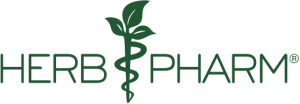

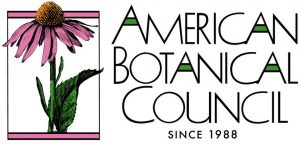
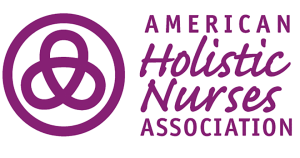
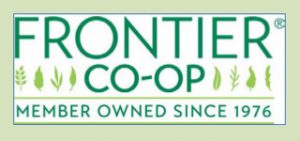
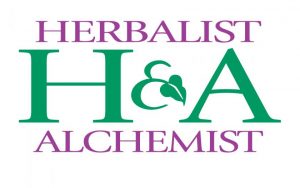
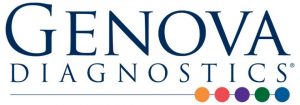


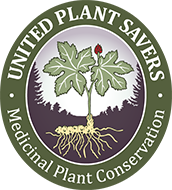
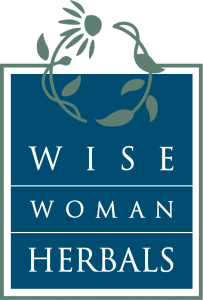
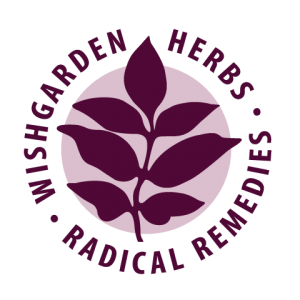
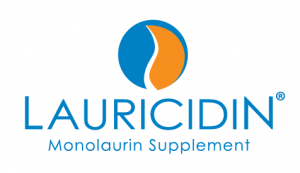

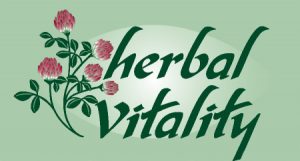
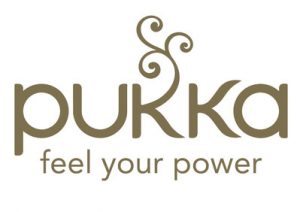
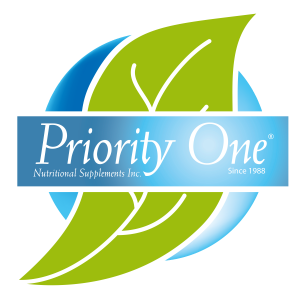


We look forward to seeing you for another symposium!
Buy Tickets










